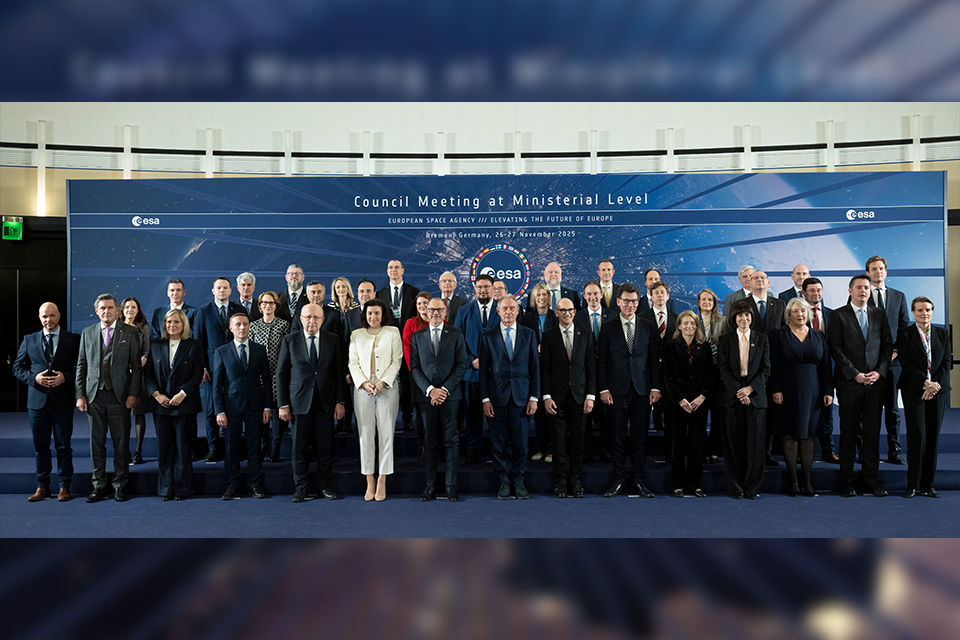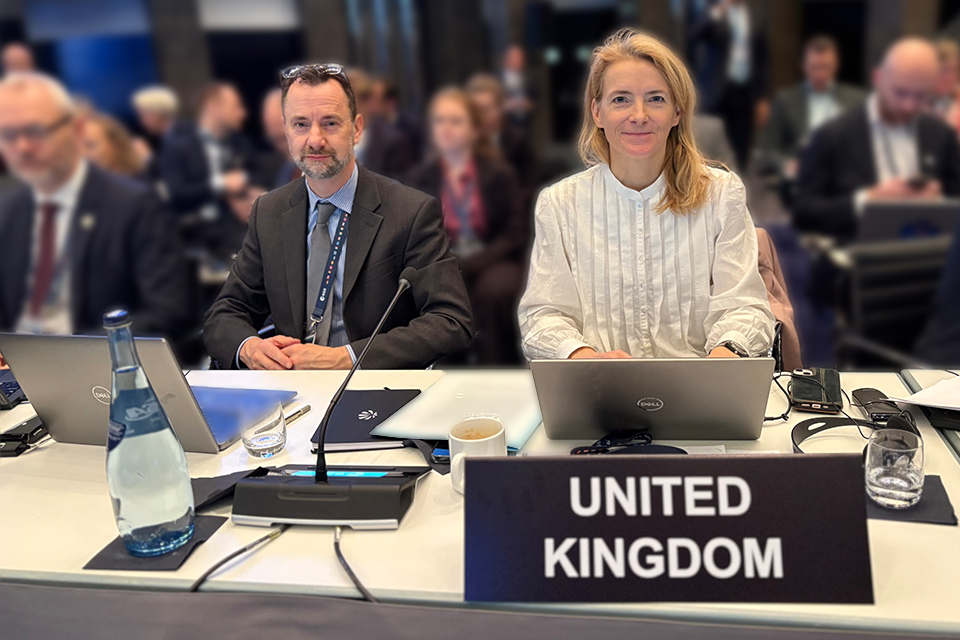The UK's economy and security will benefit from a new £1.7 billion investment package in European Space Agency (ESA) programmes.
Agreed during the ESA Council of Ministers (CM25) in Bremen, this new funding brings sharper focus to deliver maximum value for money, sustain thousands of high-skilled jobs, and drive science and innovation that directly benefits people and businesses, from increased connectivity to more resilient infrastructure and public services.
Building on existing commitments, the new funding increases the UK's current level of support for ESA programmes to £2.8 billion over the next decade (2025/26 to 2034/35), with further commitments set to be made in 2028 at the next ESA Council of Ministers.
This funding returns to UK industry and universities as contracts, supporting the development of new technologies, while putting British scientists, engineers and entrepreneurs at the forefront of global space programmes. Evaluation shows that every £1 invested in ESA returns £7.49 in direct benefits to the UK economy.
Space Minister Liz Lloyd CBE said:
Our space sector is a key driver of our economic growth and national security, and also supports our allies in Europe and beyond.
After these negotiations in Bremen, during what remains a challenging time for economies across Europe, we have secured backing for our priority ESA programmes, which will support thousands of jobs, greater resilience and cutting-edge science and technology across the UK.

ESA Ministerial Council 2025. Credit: ESA
The new commitments include a record £162 million for launch programmes, including the European Launcher Challenge. This initiative is designed to improve access to space by opening up the European market to commercial operators, increasing resilience and driving down the cost of launching the satellites that deliver services like communications, navigation and weather forecasting.
This commitment supports the aim of securing assured access to space for the UK, enhancing our national security in an uncertain world, and ensuring the UK benefits from the fast-growing global space market, which makes an outsized contribution to our economy. Through these initiatives, the government will continue to work with launch companies that can deliver our assured access objectives, and develop and strengthen existing partnerships with NATO and European allies.
The UK-led Vigil mission to monitor and forecast dangerous space weather, in partnership with the US, will proceed, with a new £131 million commitment from the UK and significant support from European partners. Space weather - which generated displays of the Northern Lights over parts of the UK this month - can disrupt vital technology on Earth and in space.
These rare but extreme events risk impacting our daily lives, damaging power grids, satellites, and satellite navigation and timing signals used by emergency services. Vigil will improve forecasting of solar storms to help manage these risks and protect national security.
Europe's first Mars rover, built in the UK by Airbus and named after British scientist Rosalind Franklin, secured further backing in Bremen, bringing its launch a step closer in 2028. The mission will drill down into the red planet to hunt for signs of past life, putting the UK at the forefront of the race to answer one of the longest standing scientific questions about the potential for life to exist on other planets.
The UK also continues its support for the Argonaut lunar lander, following the award of major UK industrial contracts last week to supply the engine and propulsion sub-systems for the mission.
High-growth programmes, including Commercialisation, the General Technology Support Programme and Advanced Research in Telecommunications Systems, share a new £261 million commitment. This includes support for a new direct-to-device satellite system that can connect directly to mobile phones, boosting connectivity in hard-to-reach areas and during emergencies.
A commitment of £511 million to ESA's core budget backs the UK's role at the cutting-edge of space science. A commitment of £120 million at this Ministerial for Earth observation programmes will support mission studies and harness data from climate and environment monitoring satellites to boost security and growth. This is in addition to the UK's existing ESA commitments, meaning a total of approximately £350 million allocated to ESA Earth observation projects over the next four years. Additionally, a new £57 million investment in advanced Position, Navigation and Timing (PNT) technologies will support UK strengths in this important area.
Global demand for space capabilities is growing fast. The UK space sector employs 55,000 people, with a further 81,000 jobs in the supply chain, and generates an annual income of £18.9 billion. More broadly, satellite services support wider industrial activities worth £454 billion to the UK economy, or 18% of GDP.

UK Space Agency CEO Dr Paul Bate, and Space Minister Liz Lloyd CBE.
The government is putting greater focus on developing key space capabilities, and increasing access to more capital and financing options, while making strategic investments in important missions through ESA, as well as bilaterally with wider international partners.
Dr Paul Bate, CEO of the UK Space Agency, said:
With a sharper focus and more coordinated approach to space across government, we entered these important negotiations with clear priorities, and delivered against them. But what's even more important is how we worked as a team - government, industry, academia - to deliver the capabilities in space that our country needs.
I'd like to put on record my thanks to everyone in the UK space sector for all the work they do, day-in day-out, and to all those who supported these important negotiations. Now the real work begins to translate these commitments into valuable contract wins for the sector.
As well as ESA programmes, the UK space sector has access to a wider range of national space funding than ever before. This year the government increased the core civil space budget through the UK Space Agency by 8% and announced a further £2.8 billion over the coming four years (2026/27 to 2029/30). Today's commitments to the European Space Agency form one integral part of this larger effort, delivering growth for the UK economy through space, as part of the Government's Plan for Change.






